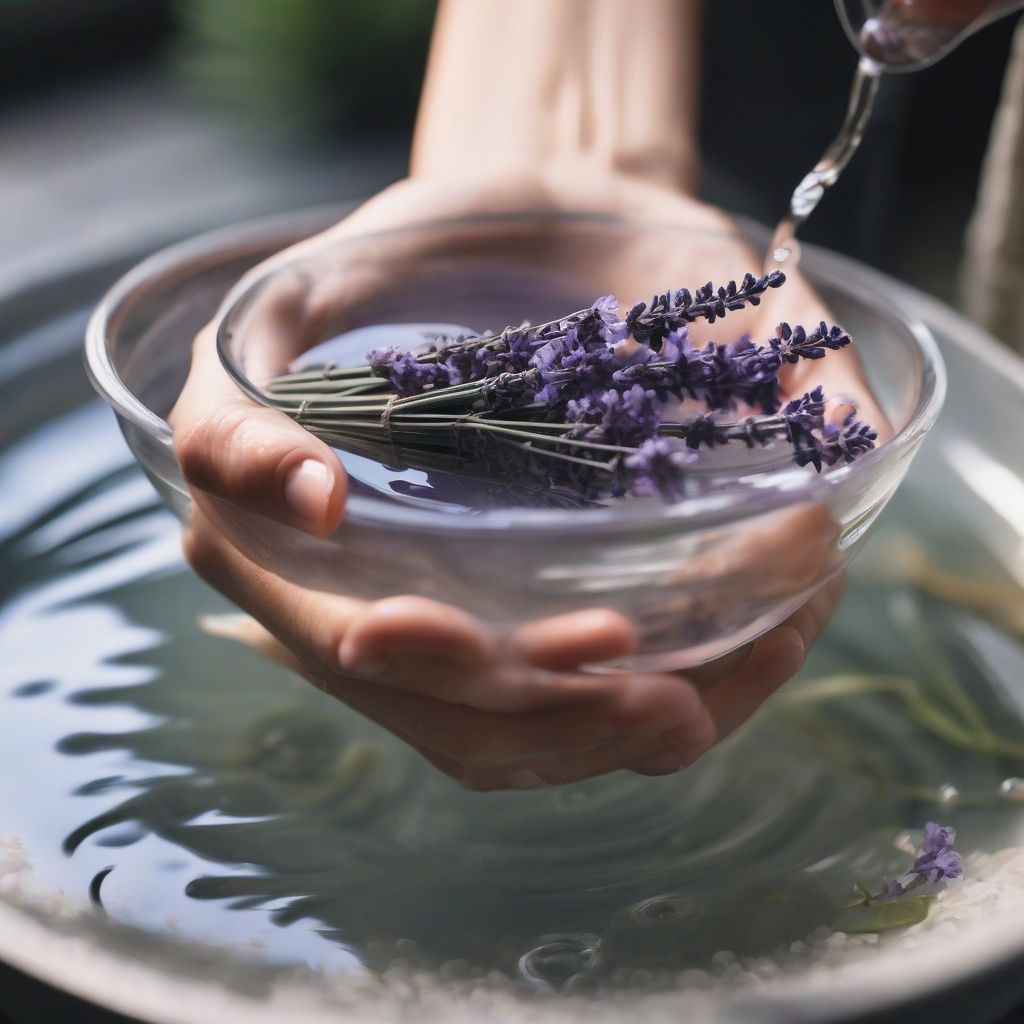Have you ever dreamt of achieving that radiant, healthy glow without resorting to harsh chemicals? The answer might be closer than you think, hidden within your spice rack or garden. For centuries, herbs have been revered for their culinary and medicinal properties, and now, they’re taking center stage in natural skincare. Join me as we uncover the secrets of harnessing the power of herbs for naturally beautiful skin.
Understanding the Power of Herbs for Skin
Herbs are brimming with potent antioxidants, vitamins, and minerals that can work wonders for your skin. These natural powerhouses can help:
- Combat free radicals: Environmental aggressors like pollution and UV rays can damage your skin, leading to premature aging. Herbs rich in antioxidants, such as rosemary and calendula, can neutralize these harmful free radicals, protecting your skin and maintaining its youthful appearance.
- Reduce inflammation: Skin conditions like acne, eczema, and rosacea often involve inflammation. Herbs like chamomile, calendula, and lavender possess anti-inflammatory properties that can soothe irritation and redness, promoting a calmer complexion.
- Promote healing: Got a cut, scrape, or sunburn? Herbs like aloe vera, calendula, and gotu kola can accelerate wound healing, minimize scarring, and restore your skin’s natural barrier function.
- Balance oil production: Oily skin? Look no further than herbs like tea tree, witch hazel, and rosemary. Their astringent properties help regulate sebum production, preventing clogged pores and breakouts.
Top Herbs for Natural Skincare and How to Use Them
Ready to experience the magic of herbal skincare? Let’s explore some star players and their unique benefits:
1. Aloe Vera: The Soothing Superstar
Aloe vera is a succulent plant renowned for its gel-like sap, a powerhouse of vitamins, minerals, and antioxidants.
Benefits:
- Soothes burns and irritations: Aloe vera’s anti-inflammatory and cooling properties make it a go-to remedy for sunburns, minor burns, and skin irritations.
- Hydrates and moisturizes: Its humectant nature draws moisture to the skin, keeping it hydrated and supple.
- Promotes wound healing: Aloe vera can speed up the healing of minor cuts, scrapes, and burns.
How to use:
- Apply fresh aloe vera gel directly to the affected area.
- Look for natural aloe vera gels or lotions.
2. Calendula: The Gentle Healer
Calendula, with its vibrant orange flowers, is a skincare superhero, especially for sensitive skin.
Benefits:
- Soothes inflammation: Its anti-inflammatory properties help calm eczema, psoriasis, and dermatitis.
- Promotes wound healing: Calendula accelerates skin cell regeneration, aiding in wound healing and reducing scarring.
- Gentle and hydrating: It’s gentle enough for babies and those with sensitive skin, providing soothing hydration.
How to use:
- Apply calendula cream or ointment to affected areas.
- Use calendula-infused oil as a gentle moisturizer.
3. Chamomile: The Calming Champion
Known for its relaxing aroma, chamomile is a gentle yet effective herb for soothing and calming the skin.
Benefits:
- Reduces inflammation: Chamomile’s anti-inflammatory properties help alleviate redness, itching, and irritation.
- Soothes sensitive skin: Its gentle nature makes it ideal for sensitive and easily irritated skin.
- Reduces the appearance of dark circles: Chamomile can help brighten the under-eye area and reduce puffiness.
How to use:
- Apply chamomile tea compresses to soothe irritated skin.
- Look for skincare products containing chamomile extract.
4. Tea Tree: The Blemish Buster
Tea tree oil, derived from the Australian tea tree, is a potent antimicrobial and anti-inflammatory agent.
Benefits:
- Combats acne: Its antibacterial properties fight acne-causing bacteria, reducing breakouts.
- Controls oil production: Tea tree oil helps regulate sebum production, preventing clogged pores.
- Soothes insect bites: Its anti-inflammatory properties can reduce itching and swelling from insect bites.
How to use:
- Spot treatment: Apply diluted tea tree oil directly to blemishes using a cotton swab. (Always dilute tea tree oil before applying it to the skin.)
- Cleanser or toner: Look for skincare products containing tea tree oil.
5. Lavender: The Relaxing Rejuvenator
Lavender, with its calming scent, not only relaxes your mind but also works wonders for your skin.
Benefits:
- Soothes and calms: Its anti-inflammatory properties reduce redness, itching, and inflammation.
- Balances oil production: Lavender can help balance sebum production, making it beneficial for both oily and dry skin.
- Promotes sleep: Using lavender oil in aromatherapy or skincare can promote relaxation and better sleep, which in turn benefits skin health.
How to use:
- Add a few drops of lavender essential oil to your bath for a relaxing and skin-soothing experience.
- Use lavender-infused lotions or creams for their calming and balancing properties.
 Lavender for Skin
Lavender for Skin
Creating Your Own Herbal Skincare Routine
Now that you’ve met some herbal all-stars, let’s create a personalized skincare routine:
- Identify Your Skin Type: Determine whether you have oily, dry, sensitive, or combination skin to choose herbs that address your specific needs.
- Start Slowly: Introduce one new herb at a time to observe your skin’s reaction.
- Patch Test: Before applying any new herbal product or remedy to your face, perform a patch test on a small area of skin to check for any adverse reactions.
- Be Patient: Natural remedies may take time to show noticeable results. Be patient and consistent with your routine.
- Consult a Professional: If you have any underlying skin conditions or concerns, consult with a dermatologist or qualified healthcare professional before incorporating new herbal remedies into your skincare routine.
Conclusion: Embrace the Power of Nature for Radiant Skin
Incorporating herbs into your skincare routine is a natural and effective way to achieve healthy, glowing skin. Whether you choose to use fresh herbs, essential oils, or herbal extracts, listen to your skin and enjoy the journey to radiant skin, naturally.
Ready to explore more natural ways to enhance your overall well-being? Discover how to use herbs to support your health and vitality in our article on How to Use Herbs to Support Overall Well-being. And if you’re ready to take your herbal skincare to the next level, learn how to create your own soothing salves and balms with our guide on How to Make Herbal Salves and Balms for Skin Issues.
Have you incorporated herbs into your skincare routine? Share your favorite herbal remedies and tips in the comments below!
[amazon bestseller=”herbal skincare”]
